The Great Debates of Our Time
Saturday, November 19, 2016. San Francisco
Videos available on YouTube Speakers
The future is not what it used to be
We're all seeing impressive developments. But the future is not determined. The ink isn't dry. What should humanity's path look like? Foresight is bringing together leading minds to fight it out in exciting interactive debates covering critical topics from longevity to crypto-currency, from AI to designer babies, and from new governance to X-risks. Join our roundtable discussions, sample the foods of the future and connect with each other.
Our goal is to engage both the public and industry leaders in important conversations that may otherwise not be had.
The event website: http://foresightday.strikingly.com/
Photos can be accessed on the event Facebook page.
For a quick overview of the event, see Alton Sun's notes.
When Saturday, November 19, 2016
1-7 PM: Core event with debates and audience voting
7 PM-late: Special dinner for speakers and Foresight Members
Where Antique mansion turned incubator at secret location in Alamo Square, SF
Videos available on YouTube
Introduction to Foresight Institute's Debates About the Future
The future is not what it used to be
Video on YouTube: https://www.youtube.com/watch?v=3nXStYqiapU
Published on Dec 14, 2016. Length: 3:16
Some of the conversations that Foresight Institute is championing.
Transcript
Julia Bossmann, President, Foresight Institute
We're not just running the technical workshops behind closed doors. We also want to involve the public, and this event today is to involve the public and to have these debates out in the open. The big questions that are brought up with the advent of artificial intelligence, with the advent of nanotechnology, they should not just be answered by the engineers that build it.
Steve Omohundro, President, Possibility Research; President, Self-aware System
You really don't want just some scientists sitting in a basement in Palo Alto deciding on the future of humanity, so I think the entire world should be thinking about what would be the ideal future for everybody.
David Eagleman, Professor of Neuroscience, Stanford University
The Great Debates provide an opportunity for very different people to come together at the same time and answer questions and bounce off one another, and so that's been really wonderful to watch this today and to be a part of this today.
Maya Lockwood, Director of Engagement, Foresight Institute
Our future technologies are actually impacting every area of our lives: in health, in government, in finance, you name it.
Julia Bossmann, President, Foresight Institute
And that's why we're bringing people together to have these debates. We want to have the discourse, we want to have the disagreements on stage to see that the ink isn't dry.
Allison Duettmann, Program Manager, Foresight Institute
Also, the events that I'm attending in the bay area, you have one keynote speaker, who's really versed in the subject and was giving you an excellent talk in, like what the future has in store for us. Well, what if we bring several of these into one room, and they all have different opinions on the matter rather than just having one person telling you what the future is, and you follow him.
Maya Lockwood, Director of Engagement, Foresight Institute
The ultimate goal for holding The Great Debates today was to get the public involved, get the public engagement in these very, very important conversations.
Dr. Joon Yun, President, Palo Alto Investors
Well, another world to think about, what would happen if we enable the body to have sustained health. What are the social, economic, political … what's gonna happen in the investment landscape, what's going to happen to our ideas of war, our ideas about land.
Nichol Bradford, Executive Director, Transformative Technology Lab
Mental and emotional well-being is one of the inputs for the output of a better world. How do I know myself better, and how do I know and connect to you better. Mental and emotional well-being is one of the inputs and if we don't have that we don't get to the better world.
Ryan Bethencourt, Program Director, Indiebio; Venture Partner, SOSV
Many of us are very excited about space—not just Mars, but the entire solar system, or maybe further out. Okay, great! We want to get these meat bodies through space, through the darkness in the void of space. How we gonna do that.
Steve Omohundro, President, Possibility Research; President, Self-aware System
We're on the verge of a major transformation through artificial intelligence. The technologies are moving, have been really, really fast. They are going to impact every aspect of society, but society is not ready.
Bryan Johnson, Founder, Braintree; CEO, Kernel
What will become of human intelligence? We talk a lot about artificial intelligence, and in many ways it's sucked all the air out of the room. Intelligence is the most consequential and powerful resource in existence. It is what allows us as humans to reign supreme on planet Earth.
Julia Bossmann, President, Foresight Institute
Part of our mission is to build the bridge between the engineers who are building the breakthrough technology and the wider public that is going to interact with this technology.
Tomorrow and the day after
Longterm thinking, X-Risk, Moore's Law
Video on YouTube: https://www.youtube.com/watch?v=3_zbR2fZpx8
Published on Jan 23, 2017. Length: 45:32
More …
Drop everything to work on AI
Safety first? Approaches, Predictions
Video on YouTube: https://www.youtube.com/watch?v=mVvxCZI2P4E&
Published on Jan 18, 2017. Length: 48:35
More …
Life, longer and better
Longevity, Bio & Nanotechnology, Neuroscience
Video on YouTube: https://www.youtube.com/watch?v=QwKiJ3ebcRM
Published on Jan 26, 2017. Length: 50:57
More …
Goodbye Nation-States
Blockchain, Alternative societies, Basic income
Video on YouTube: https://www.youtube.com/watch?v=CavabATzEAk
Published on Jan 30, 2017. Length: 48:48
More …
Speakers
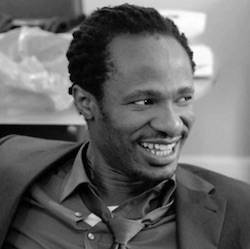 Oshiorenoya Agabi, Founder of Koniku Oshiorenoya Agabi, Founder of Koniku
Founder and CEO of Koniku Inc. A wetware company combining biological neurons with silicon systems for sensing, control, and computation. www.koniku.io. He has over 10 years of experience in neuroelectronic interfacing within both industry and academia. As a strategic program lead at a robotics startup in Switzerland (Neuronics AG, acquired in 2008), Osh implemented learning algorithms for pick-and-place robots which work alongside factory workers. The team achieved significant success in developing robots that learn object categorisation autonomously.Osh also led a cross-disciplinary industry team to develop an in vitro reflex arc for modeling implantable neural chips. These chips were to interface with the peripheral nervous system. The project was completed with a successful design of an implantable chip lasting 30-40 years. While leading work in the applications of liquid state machines to biological neurons on a chip, this was completed for the first time in 2004 at the ETH Zurich (Eidgenössische Technische Hochschule)
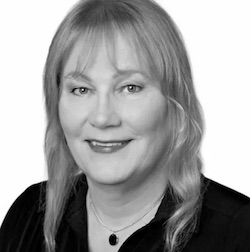 Monica Anderson, Director of Research at Syntience Inc. Monica Anderson, Director of Research at Syntience Inc.
Monica Anderson has decades of experience with traditional AI techniques (specializing in NLP) and over a decade of experience with deep neural networks. She has been conducting independent research on neural networks since 2001 and she founded Syntience Inc. as a vehicle to enable that in 2004. She created three expert systems for Cisco and has used traditional AI and NLP techniques for Google, Equilar, Kanisa, and Kosmix/WalmartLabs, and she co-founded Sens.AI in 2013. She switched strategies from traditional "Reductionist" AI to Deep Neural Networks in 2001, five years before the Deep Learning breakthrough in 2006 and twelve years before the rest of the AI research community started switching in 2012. She is exploring neural network strategies beyond "Deep Learning" and is favoring a "West Pole" approach where the system creates the neural network as it learns, rather than having the network topology be specified by programmers, as is common in Deep Learning. She is a frequent public speaker and proponent of "Model Free Methods" and believes that intelligence starts with subconscious Intuition. Her most important sound bite is "All intelligences are fallible".
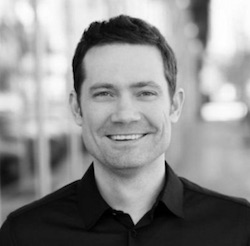 Michael Andregg, Co-Founder and CSO at Fathom Computing Michael Andregg, Co-Founder and CSO at Fathom Computing
Michael Andregg was Founder and CTO at Halcyon Molecular from 2002-2012. As company builder, he handled all aspects of starting a company from incorporating to fundraising and recruiting. As a technologist, he invented and built a molecular threader system for nano-manipulation of single DNA strands. He performed electron microscopy, AFM, programming, and technique development. Later he managed research and helped lead 40 scientists and engineers, including project management and experimental strategy. He has been Co-Founder and CSO at Fathom Computing since 2014.
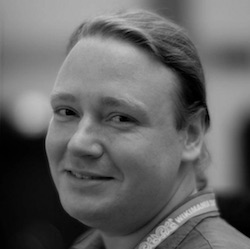 Brian Behlendorf, Executive Director of Hyperledger at the Linux Foundation Brian Behlendorf, Executive Director of Hyperledger at the Linux Foundation
Brian Behlendorf is the Executive Director of Hyperledger, a blockchain technology initiative hosted at the Linux Foundation. Behlendorf was a primary developer of the Apache Web server and a founding member of the Apache Software Foundation. He has also served on the board of the Mozilla Foundation since 2003 and the Electronic Frontier Foundation since 2013. He was the founding CTO of CollabNet and CTO of the World Economic Forum. Most recently, Behlendorf was a managing director at Mithril Capital Management LLC, a global technology investment firm.
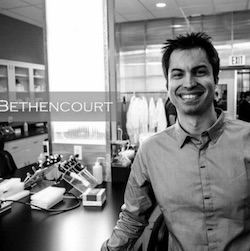 Ryan Bethencourt, Program Director & Venture Partner at IndieBio Ryan Bethencourt, Program Director & Venture Partner at IndieBio
Ryan is a biotech entrepreneur, investor and one of the founders of the biohacker movement. He’s currently the Program Director and Venture Partner at IndieBio and has invested in over 56 early stage biotech startups. Ryan’s passionate about the future of biology as a technology, applied across all industries to solve some of humanity’s most intractable problems. He was previously head of life sciences at the XPRIZE Foundation, the former CEO of Berkeley Biolabs and Halpin Neurosciences and his work at the interface of science and business has been covered by many major publications.
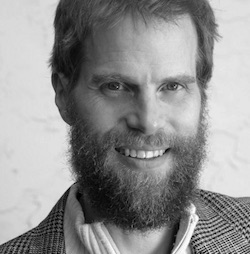 Joe Betts-Lacroix, Co-Founder at Vium Joe Betts-Lacroix, Co-Founder at Vium
Joe was the primary technical founder of hardware/software startup OQO which entered the Guinness Book of World Records for building the smallest full-featured PC. His experience spans from biotech research to electronics design. Very experienced in invention, prosecution and monetization of intellectual property, he has over 80 Patents granted and pending in fields ranging from biophysics and safety systems to antennas, thermal systems, user interfaces and analog electronics. He has written numerous peer-reviewed publications in fields such as biophysics, genetics, electronics and robotics. Joe holds a Harvard A.B., MIT S.M. and Caltech research fellowship.
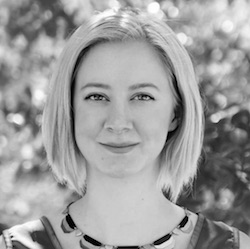 Julia Bossmann, President of Foresight Institute Julia Bossmann, President of Foresight Institute
Julia Bossmann is the president of Foresight Institute. Previously she founded at Synthetic, co-founded Anticip8 Analytics, and conducted research of coming technologies at Bosch Research & Technology. She is a McKinsey fellow, Singularity University GSP graduate, and World Economic Forum Global Shaper. Her academic background is in Neuroscience and Psychology where she holds a MSc with highest honors. She speaks on AI, innovation, the future, and how technology transforms society. In 2016 the World Economic Forum appointed Julia as member of the Global Future Council on Artificial Intelligence and Robotics.
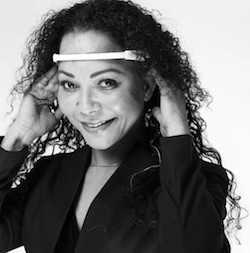 Nichol Bradford, Co-Founder of the Transformative Technology Lab Nichol Bradford, Co-Founder of the Transformative Technology Lab
Nichol Bradford, MBA is the CEO of the Willow Group, publisher of the Finders Course. She is the Executive Director of the Transformative Technology Lab at Sofia University (transtechlab.org). She has served as a senior executive for major companies including Activision Blizzard, Disney, and Vivendi Games. Nichol has an MBA from Wharton School of Business in Strategy, a BBA in Marketing from the University of Houston, and is a graduate of Singularity University’s Graduate Studies Program 2015. She currently serves on the board of Brandon Marshall's Project 375 Foundation for Mental Health.
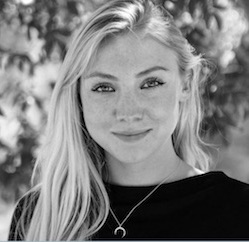 Allison Duettmann, Program Manager at Foresight Institute Allison Duettmann, Program Manager at Foresight Institute
Allison is Program Manager at Foresight Institute. She is interested in applying good philosophy to aid the longterm well-being of current and future species. She holds a Cum Laude MSc from the London School of Economics, where she developed a moral framework for Artificial General Intelligence. Allison participated in the McKinsey Venture Academy for Social Enterprises and moderated a Global Young Leaders Conference meeting on aid at the World Bank. She planned TEDx, workshops and conferences for governments, private companies, think tanks and NGO’s in Germany, France, Colombia, the UK and the US.
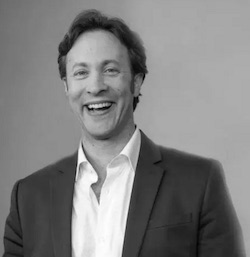 David Eagleman, Neuroscientist at Stanford, author of PBS series The Brain with David Eagleman David Eagleman, Neuroscientist at Stanford, author of PBS series The Brain with David Eagleman
David Eagleman is a neuroscientist, New York Times bestselling author and Guggenheim Fellow. He is the writer and presenter of The Brain, an international 6-hour television series that asks what it means to be human from a neuroscientist's point of view. He holds an appointment in the Department of Psychiatry and Behavioral Sciences at Stanford University in Palo Alto, California. Dr. Eagleman’s areas of research include time perception, vision, synesthesia, and the intersection of neuroscience with the legal system. He directs the Laboratory for Perception and Action, and is the founder and director of the Center for Science and Law. He is the author of several neuroscience books, including (1) The Brain: The Story of You, (2) Incognito: The Secret Lives of the Brain and (3) Wednesday is Indigo Blue: Discovering the Brain of Synesthesia. He has also written an internationally bestselling book of literary fiction, Sum, which has been translated into 28 languages and was named a Best Book of the Year by Barnes and Noble, New Scientist, and the Chicago Tribune. Dr. Eagleman writes for the Atlantic, New York Times, Discover Magazine, Slate, Wired, and New Scientist, and appears regularly on National Public Radio and BBC to discuss both science and literature. He has been a guest on the Colbert Report and profiled in the New Yorker.
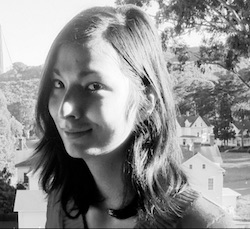 Danielle Fong, Co-Founder & Chief Scientist at LightSail Energy Danielle Fong, Co-Founder & Chief Scientist at LightSail Energy
Danielle Fong has been CO-Founder, Chief Science Officer and Chief Strategist at LightSail Energy since 2009. LightSail believes that a low-cost grid-scale energy storage solution holds the key to unlocking the true potential of increasingly competitive renewable energies, optimizing power grids, democratizing access to energy, and helping to make the world a safer and better place for future generations. LightSail was founded in 2009 by Danielle Fong, Steve Crane and Ed Berlin. We aim to produce the world’s cleanest and most economical energy storage systems. Compressing air creates heat energy. Until now, this was wasted, drastically reducing efficiency.
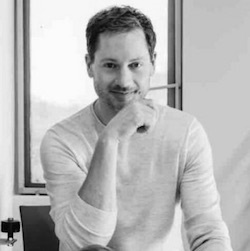 Bryan Johnson, Founder of Kernel, Braintree and the O/S Fund Bryan Johnson, Founder of Kernel, Braintree and the O/S Fund
In 2007, Bryan Johnson founded Braintree, an online and mobile payments provider. In 2013, Braintree was acquired by PayPal for $800M. In 2014, Bryan invested $100M to start OS Fund to support inventors and scientists who aim to benefit humanity by rewriting the operating systems of life. His OS Fund investments include endeavors to cure age-related diseases and radically extend healthy human life to 100+, make biology a predictable programming language, and reimagine food using biology, among others. He founded Kernel in 2016, investing $100M of his personal capital, to build the world's first neuroprosthesis to enhance human intelligence (HI). Johnson believes that the combination of human and artificial intelligence (HI + AI) will define humanity’s future.
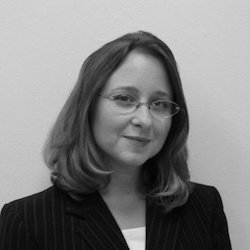 Tanya Jones, Co-Founder and CEO of Arigos Biomedical Tanya Jones, Co-Founder and CEO of Arigos Biomedical
Before becoming Co-Founder and CEO of Arigos Biomedical in 2011, Tanya Jones was first Director of Research Operations (2010-2012) and then Chief Operating Officer (2012-2014) at SENS Foundation. Before that, she was with Alcor Life Extension Foundation, first as Chief Operating Officer (2003-2008) and then as Chief Executive Officer (2008-2009). Arigos Biomedical is making great strides towards the banking of human organs, demonstrating functional and structural recovery of similarly-sized tissues from below -120°C.
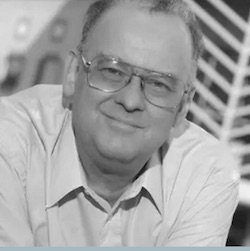 Dr. Ralph Merkle, Co-founder of Nanofactory Collaboration, Faculty at Singularity University, Director of Alcor Dr. Ralph Merkle, Co-founder of Nanofactory Collaboration, Faculty at Singularity University, Director of Alcor
Dr. Merkle received his Ph.D. from Stanford University in 1979 where he co-invented public key cryptography. He joined Xerox PARC in 1988, where he pursued research in security and computational nanotechnology until 1999. He was a Nanotechnology Theorist at Zyvex until 2003, when he joined the Georgia Institute of Technology as a Professor of Computing until 2006. He chaired the Fourth and Fifth Foresight Conferences on Nanotechnology, was co-recipient of the 1998 Feynman Prize for Nanotechnology for theory, co-recipient of the ACM’s Kanellakis Award for Theory and Practice and the 2000 RSA Award in Mathematics. Dr. Merkle has fourteen patents and has published extensively. He is now a Senior Research Fellow at the Institute for Molecular Manufacturing. In 2001 he and Robert Freitas co-founded the Nanofactory Collaboration and in 2008 he and Freitas published "A Minimal Toolset for Positional Diamond Mechanosynthesis" which describes positionally-controlled atom-by-atom fabrication of diamondoid materials. In 2011 Dr. Merkle was inducted into the National Inventors Hall of Fame.
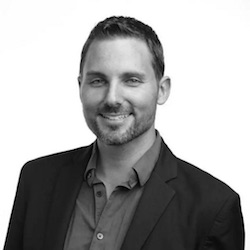 James Norris, Founder of Self Spark, Bay Area Futurists Organizer James Norris, Founder of Self Spark, Bay Area Futurists Organizer
James is a social entrepreneur and lifehacker. He believes if we first change ourselves, we can better change the world. He’s dedicating to leveraging the best behavioral science research and emerging technology to help individuals and organizations become happier, healthier, and more effective.
He started as an entrepreneur at the age of 6 selling candy during recess. Since then he’s founded or helped establish 22 organizations, including a university for today’s Leonardo da Vinci, a civic innovation hackathon series, a sustainable fish farm, and a museum/theme park hybrid.James is currently the founder and CEO of Self Spark, a global platform for science-based lifehacking events. He graduated from the University of Texas at Austin as a triple major/quadruple minor. He believes in living with intention, and has experienced 2,050 “firsts” in life.
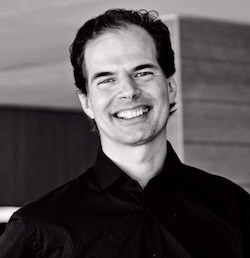 Steve Omohundro, President, Possibility Research Steve Omohundro, President, Possibility Research
Steve Omohundro has been a scientist, professor, author, software architect, and entrepreneur doing research on natural and artificial intelligence. He has degrees in Physics and Mathematics from Stanford and a Ph.D. in Physics from U.C. Berkeley. He was a computer science professor at the University of Illinois at Champaign-Urbana and cofounded the Center for Complex Systems Research. He published the book “Geometric Perturbation Theory in Physics”, designed the programming languages StarLisp and Sather, wrote the 3D graphics system for Mathematica, invented many new learning algorithms (including manifold learning, model merging, bumptrees, and family discovery), and built systems which learn to read lips, control robots, and induce grammars. He has worked with many research labs and startup companies. He created the think tank Self-Aware Systems to analyze the social impact of intelligent systems and to develop approaches that are provably safe and beneficial for humanity. This work has been in the media recently: a TEDx talk, an Oxford keynote, the book “Our Final Invention”, and stories in the Boston Globe, USA Today, The New Yorker, The Daily Beast, NPR, Future Talk TV, and Singularity 1 on 1. Steve recently started Possibility Research to develop a new kind of intelligent software to improve programming, decision making, contracts, and governance.
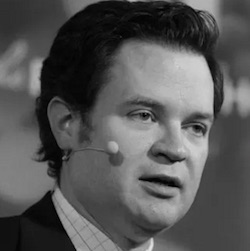 Jim O'Neill, Co-Founder of the Thiel Fellowship and Managing Director at Mithril Jim O'Neill, Co-Founder of the Thiel Fellowship and Managing Director at Mithril
Jim is a partner at Mithril Capital Management. He serves on the boards of the SENS Foundation, The Seasteading Institute, and the Thiel Foundation, which promotes science and liberty across the globe and opposes violence in all its forms. He co-founded the 20 Under 20 Thiel Fellowship, which identifies and supports the tech visionaries of tomorrow in fields as diverse as robotics, biotech, space, communications, energy, and transportation. Before joining Mithril, he ran the Thiel Foundation and was a managing director of Clarium. Previously, he was the principal associate deputy secretary of health and human services.
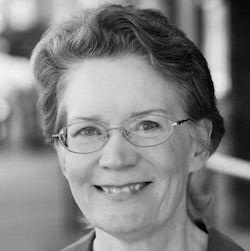 Christine Peterson, Co-founder and former President of Foresight Institute Christine Peterson, Co-founder and former President of Foresight Institute
Christine Peterson is Co-founder and former President of Foresight Institute. She lectures and writes about nanotechnology, AI, and longevity. Christine leads Foresight’s technical workshops and Feynman Prizes in Nanotechnology. She is Co-author of Unbounding the Future: the Nanotechnology Revolution (Morrow, also free online) and Leaping the Abyss: Putting Group Genius to Work (knOwhere Press, also free online). She advises the Machine Intelligence Research Institute, Global Healthspan Policy Institute, National Space Society, startup Ligandal, and the Voice & Exit conference. She coined the term ‘open source software.’ She holds a bachelor’s degree in chemistry from MIT.
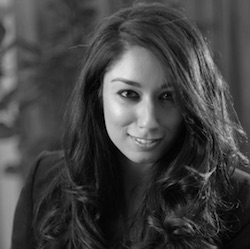 Simone Syed, Founder and Managing Partner at Velorum Capital, Co-Founder of BIL Conference Simone Syed, Founder and Managing Partner at Velorum Capital, Co-Founder of BIL Conference
Simone founded Velorum Capital, a seed-stage venture capital firm bringing industry into the 21st century through the convergence of hardware, software, and data analytics with investments in manufacturing, construction, robotics & automation, industrial safety, and engineering tools. Simone was previously an investor with Mithril Capital Management, computational neuroscientist advising startups, Chief of Marketing at Tradehill bitcoin exchange/bitcoin.com, Co-Founder of BIL Conference, and Founder of BlackStarr Media (major partners included SpaceX and Discovery Channel).
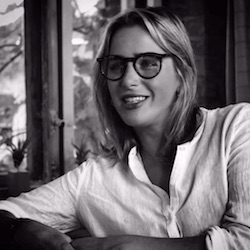 Riva-Melissa Tez, Managing Partner at Permutation Ventures Riva-Melissa Tez, Managing Partner at Permutation Ventures
Riva-Melissa Tez is Managing Partner at Permutation Ventures, an early-stage venture capital fund investing in artificial intelligence. She has held teaching positions at the DAB and HTW Business Schools in Germany and has guest-lectured at Oxford, Birkbeck and Stanford. Riva writes for a number of publications on topics such as AI, finance and philosophy and represented machine learning in a 2016 Microsoft campaign for The Economist.
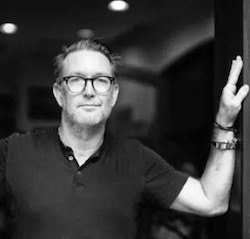 Richard Titus, Senior Vice President at Samsung Electronics Richard Titus, Senior Vice President at Samsung Electronics
Named one of the Wired 100 in 2010, serial entrepreneur and executive Richard D. Titus has a passion for technology & innovation. Richard’s startups include Razorfish, Schematic, Prompt.ly & Videoplaza. Previously he held senior leadership roles at the British Broadcasting Corporation (Future Media Controller) where he launched iPlayer and the BBC mobile service and leading DMGT’s digital holding company: Associated Northcliffe Digital (Chief Executive) where his portfolio included MailOnline and +20 global digital classified businesses. Richard is Senior Vice President at Samsung Electronics, leading customer & product experience for their consumer electronics business globally.
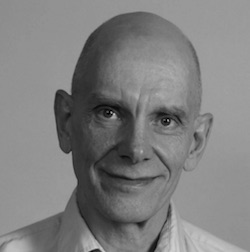 Peter Voss, Head of AGI Innovations Inc Peter Voss, Head of AGI Innovations Inc
Peter Voss is an entrepreneur with a background in electronics, business and technical software, as well as management. He has a keen interest in cognitive science and the inter-relationship between philosophy, psychology, ethics and computer science. Since the early 90's he has been researching AGI (artificial general intelligence), and in 2001 started Adaptive A.I. Inc., with the express goal of developing this technology. In addition Peter founded Smart Action Company, which offers an intelligent call automation solution based on a first-generation AGI engine. He now heads up AGI Innovations Inc., which is building increasingly advanced AGI systems. Peter often writes and presents on various philosophical topics including rational ethics, freewill and artificial minds; and is deeply involved with futurism and radical life-extension
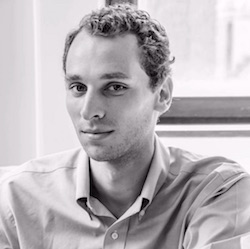 David Yanofsky, Reporter at Quartz David Yanofsky, Reporter at Quartz
David Yanofsky is a reporter at Quartz where he covers topics ranging from trade and agriculture to tourism and satellites. He uses the principles of design and the power of development to try to find and tell stories in ways only the internet can allow. A self-taught practitioner of Javascript, Processing, Python, and R he previously worked for Bloomberg creating interactive stories for its websites, television stations, radio broadcasts, and magazines. Prior to Bloomberg he was a freelance graphic designer, screen printer, and book maker.
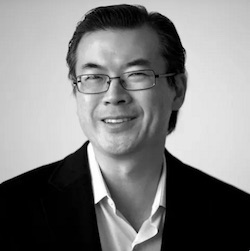 Joon Yun, President of Palo Alto Investors, founder of The Palo Alto Prize Joon Yun, President of Palo Alto Investors, founder of The Palo Alto Prize
Joon Yun is managing partner and president of Palo Alto Investors, LLC, an investment management firm founded in 1989 with $1 billion in assets invested in healthcare. Board certified in Radiology, he served on the clinical faculty at Stanford from 2000-2006. Joon Yun received his B.A. from Harvard, M.D. from Duke Medical School, and clinical training at Stanford. He has served on several corporate and non-profit boards, and has published dozens of patents, scientific articles, and business essays. He is a contributor to Forbes, and is the health editor for Evolution magazine. Joon Yun recently donated a $1million Palo Alto Prize to address aging.
Library of Foresight Institute Conferences on Nanotechnology, 1989–2015
Library of Foresight Vision Weekends and Senior Associates Gatherings, 1992–2008
|